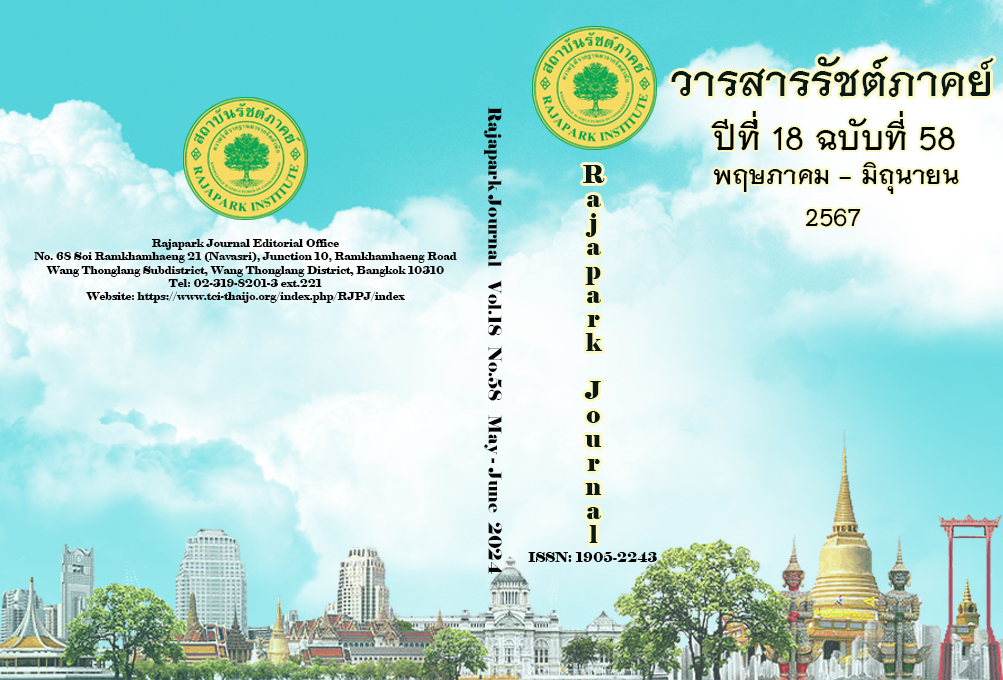Home School Guidelines for Fundamental Education, Case Study: Chiang Rai Province, Thailand
Main Article Content
Abstract
This research aimed to study 1) the basic information about fundamental education management by families (homeschool): a case study in Chiang Rai Province; 2) the lessons learned about fundamental education management by families (homeschool): a case study in Chiang Rai Province; and 3) the development of guidelines for fundamental education management by families (homeschool): a case study in Chiang Rai Province. This research employed a combination of quantitative and qualitative methods. The population studied included families providing fundamental education. Primary Educational Service Area in Chiang Rai Province and experts. The instruments used for data collection were questionnaires and structured interview forms. The statistical analysis included percentages, means, standard deviation, and content analysis. The result indicated that fundamental education management by families (homeschooling) was at a high level. The lesson learned showed interesting points in homeschooling. One advantage is that family education organizers can create and modify curricula tailored to the aptitudes and interests of learners. Families also have more time to bond with each other. However, there are limitations: learners may lack social skills, have limited access to expensive learning materials, study managers might have less personal time, and there's a lack of government subsidy for lunches. The homeschool approach encompasses five aspects: 1) Principle; 2) Objective; 3) Input; 4) Process; and 5) Expected Results. The guideline of homeschooling for fundamental education aims to cultivate learners with three attributes: 1) Learners have educational standards based on national guidelines. 2) Learners receive education according to their interests, potential, and aptitude and 3) Students learn in an integrated way that aligns with their lifestyle and family.
Article Details

This work is licensed under a Creative Commons Attribution-NonCommercial-NoDerivatives 4.0 International License.
Views and opinions appearing in the Journal it is the responsibility of the author of the article, and does not constitute the view and responsibility of the editorial team.
References
Chalermchai, Y. (2000). Model and development of home-school in Thai society(Research report). Office of the Basic Education Commission.
Charoenwongsak, K. (2012, May 29). Conducting a home school and school system. Homeschoolnetwork. https://www.homeschoolnetwork.org/blog/8
Chiang Rai Provincial Education Office. (2021). Report on the performance of family education management. Chiang Rai Provincial Education Office, Office of the Permanent Secretary, Ministry of Education, Thailand.
Constitution of the Kingdom of Thailand, B.E. 2550. (2007, April 29). Royal Gazette, 124(Vol. 47), Special Issue G., pp. 1-173.
Funchian, N. (2020). Competency-based curriculum for student development in the 21st century. http://www.trueplookpanya.com/blog/content/79321
Kanthipan, S., Buranachart, S., Gunma, N., & Unkong, T. (2021). A study of states and guidelines to the management of the basic education home school in the 21st Century. Phikun Journal, 20(1), 248-265. https://so05.tci-thaijo.org/index.php/Phikun/article/view/250945
Meesil, N., Peungposop, N., & Junprasert, T. (2017). The process of homeschooling and strengthen life and career skills in the 21st Century. Veridian E-Journal, Silpakorn University (Humanities, Social Sciences and Arts), 10(1), 208-218. https://he02.tci-thaijo.org/index.php/Veridian-E-Journal/article/view/85445
Ministry of Education, Thailand. (2002). National Education Act B.E. 2542 and Second National Education Act B.E. 2545 (2002). The Printing House of the Teachers' Council, Lat Phrao.
Nakornthap, A. (2000). Educational management of home school(Research report). Office of the Basic Education Commission.
Office of the Basic Education Commission. (2015). Report on the study of the condition and readiness of home-school. Bureau of Educational Innovation Development, Ministry of Education, Thailand.
Office of the Basic Education Commission. (2019). Guidelines for the implementation of home-school. Office of the Basic Education Commission, Ministry of Education, Thailand. http://www.bopp.go.th/?p=4450


